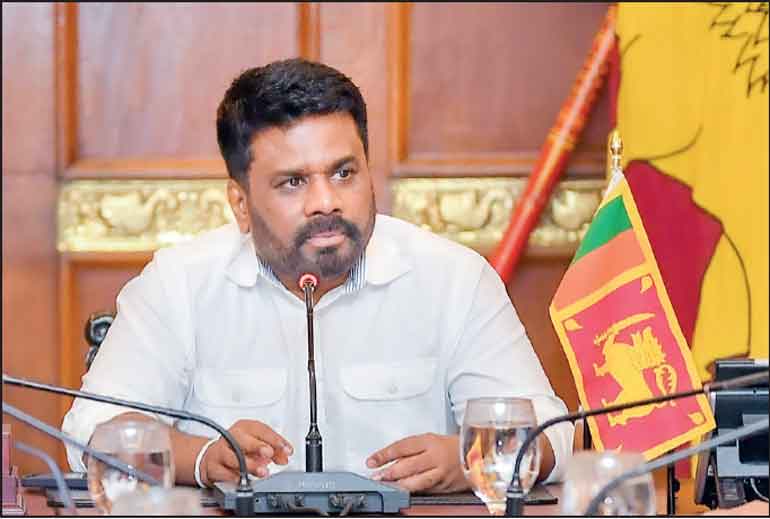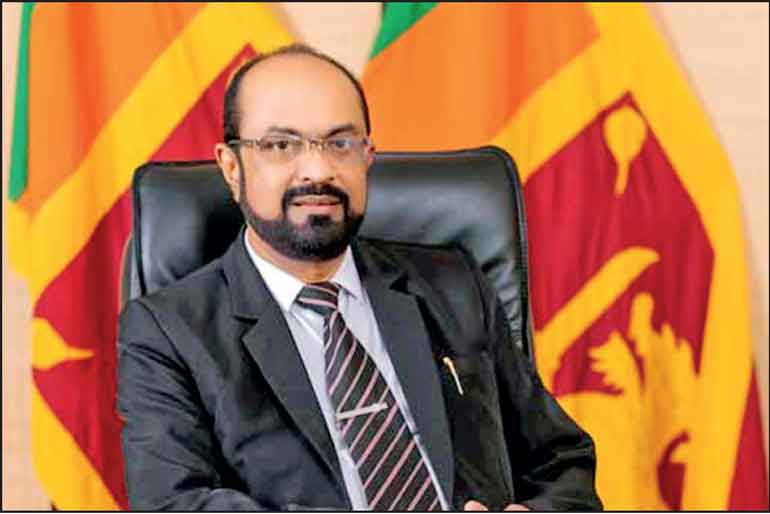Saturday Feb 21, 2026
Saturday Feb 21, 2026
Wednesday, 25 June 2025 00:00 - - {{hitsCtrl.values.hits}}

President Anura Kumara Disanayake

Energy Minister Eng. Kumara Jayakody
Three leading global donors have expressed concerns over some of the amendments to the Electricity Act urging the Government reconsider the move to ensure alignment with good governance, competitive procurement, regulatory independence, and financial sustainability.
In a strong stand the World Bank and IFC Country Manager Gevorg Sargsyan, Asian Development Bank (ADB) Country Director Takafumi Kadono and Japan International Cooperation Agency (JICA) Chief Representative of Sri Lanka Office Kenji Kuronuma have jointly written to Energy Minister Engineer Kumara Jayakody making their stand clear and calling for necessary action by the Government.
The expression of concern and recommendations were after the three donors acknowledging the Government’s and its key agencies continued engagement over the past several months on the Electricity Act 2024 Amendments published in the Gazette on 16 May and before the Parliament for consideration.
The trio believes the some of the amendments proposed impede the original intent and spirit of the Electricity Act regarding sector efficiency, good governance, and financial sustainability, all with the ultimate objective of ensuring a high quality of service to consumers at affordable prices.
In the spirit of supporting the Government in the smooth implementation of the final version of the Act and ensuring a strong energy sector for the future, the donor agencies had put in writing their recommendations with copies to several Members of Parliament such as the Members of the Sectoral Oversight Committee on Infrastructure and Strategic Development, officials of Ministry and Finance and Ministry of Energy.
For clarity and proper perspective, the Daily FT publishes below some of the contents of the letter
Permanent Government Ownership
Section 17 of the principal Act, subsection 2 is amended with entities denoted as (a), (e), (f), (g), and (h) (ii) will remain “permanently” owned by the Government (through Secretary to the Treasury). The rationale for maintaining 100% Government ownership for the NSO, NTNSP, and Pension Liabilities Company is understood. However, legislating permanent 100% Government ownership in the Act, will increase the burden on the state, limit any private investment or opportunities into the Generation Company and Distribution Company, and only hinder the Government’s options for development in a sector with large investment needs.
National Transmission Network Service Provider (NTNSP)
Clause 20, sub clause 3: The preliminary transfer plan includes LTL Holdings under the NTNSP. LTL Holdings owns and operates over 1GW of generation assets in Sri Lanka and abroad. Additionally, LTL has multiple other businesses including transmission and distribution projects, transformer manufacturing and other engineering projects. In the same clause, the preliminary transfer plan also includes Sri Lanka Energies under the NTNSP. Sri Lanka Energies has approximately 15 MW of mini-hydro plants, and other businesses including manufacturing meter components.
Having both companies under NTNSP would in turn create a generation company owning approximately 20% of Sri Lanka’s generation assets as well as multiple other businesses, coming under the responsibility of the NTNSP. Given the urgent need to upgrade the transmission network and the renewable energy integration needs, bundling businesses outside the core function of NTNSP will likely result in a deterioration in the operations of those businesses and a distraction from the core functions of NTNSP. It will also detract from the principal objective of separating the core functions of the CEB, in this case transmission vs. generation, and introducing the necessary transparency and removal of conflicts of interest, which were one of the cornerstones of the reforms.
Distribution Company
Clause 20, sub clause 4: The preliminary transfer plan assumes the Distribution Company will assume “the assets, liabilities and functions” of LECO. LECO has been operating as an independent company from CEB distribution divisions and has adopted operational efficiencies and innovations for its customers and employees. This proposal will imply that a distribution company/licensee is going to fully absorb another distribution company/licensee, without considering the commercial, operational and legal ramifications.
The creation of a large NTNSP and Distribution Company, combined with the removal of restrictions on a single entity or Government of Sri Lanka acquiring multiple unbundled entities (clause 15, sub clause 3) leaves an opening to reverse the unbundling, and return to a system of operational inefficiencies, conflicts of interests, and poor governance, all at a cost to the consumer.
Role of the regulator in tariff setting
Section 29, subsection 3 is amended with the following language: “by the substitution for the words “in accordance with the national tariff policy”, of the words “in consultation with the Ministry of Finance” rather than “after consultation with Ministry of Finance”. We have noted in previous communications that while this was accepted as a reasonable compromise in theory, we want to reiterate that this could pose challenges when trying to implement the act as this language is unclear and open to interpretation and/or legal challenge since there is ambiguity on who has final authority and accountability on tariff setting.
These changes could undermine the overarching objectives of the Electricity Act and the commitments made by the Government under the Asian Development Bank’s Policy-based Loan and World Bank’s Development Policy Operation. It will also weaken the attractiveness of Sri Lanka for investors, contrary to the Government’s intentions. We urge the Government to consider the points stated in this letter and amend the clauses to ensure they align with the core objectives of the Electricity Act—good governance, competitive procurement, regulatory independence, and financial sustainability.